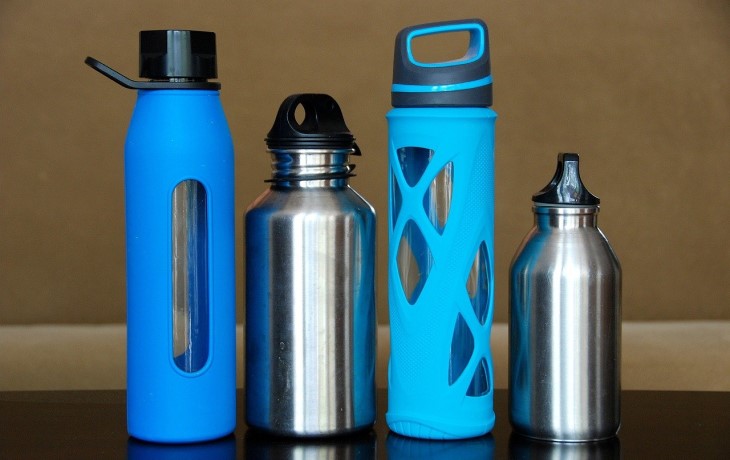Experts recommend having at least two ways to carry water in your bug out bag — a rigid canteen to keep potable water protected, and a soft collapsible canteen that doesn’t take as much space and is often used as the “dirty water” bag.
The most important bits:
- Survival experts recommend carrying 32 ounces (1 liter) of water every day. However, a canteen between 27 to 38 ounces will work great.
- Stainless steel is the most durable container available. When selecting a stainless steel container, look for an 18/8 food-grade, or 316 (18/10) surgical grade, single wall/non-insulated stainless steel canteen.
- Double-walled containers have an insulating gap between the walls, which means they can’t be used for boiling. Stick with single-walled models so you can boil water if you need to.
- Plastic canteens, like a Nalgene can be a good canteen choice, but you will want to augment it with a metal cup.
- Water bladders, like CamelBaks, are great for hiking, but can puncture and are not as versatile as a stainless steel canteen.
- Single use plastic bottles can work as long as they are kept out of the sun.
More water guides:
- Best portable survival water filters
- Best water purification tablets
- Best home water filter
- Get ready: our water supply is more vulnerable than you think
- Best emergency water storage containers for your home
After 10 hours of research (on top of our years of personal experiences), including reviewing 30+ products, these are top choices in different categories to help shortcut your shopping.
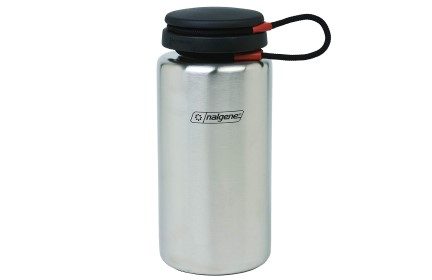
Nalgene Stainless Bottle
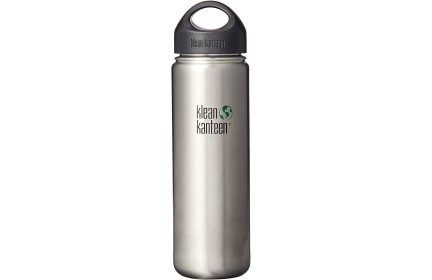
Klean Kanteen Wide Water Bottle
Stainless steel canteens (single walled, non-insulated, safe to boil):
- Bambaw Stainless Steel Bottle
- Goetland Stainless Steel WWII US Military Canteen Kit
- Klean Kanteen Wide Water Bottle
- Nalgene Stainless Bottle
- Pathfinder Wide-mouth Stainless Steel Water Bottle and Nesting Cup
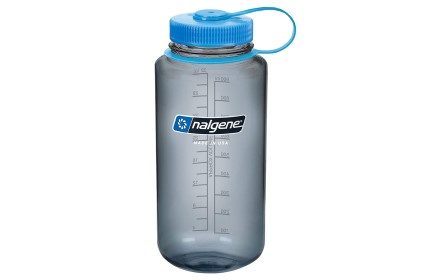
Nalgene Wide-Mouth Water Bottle
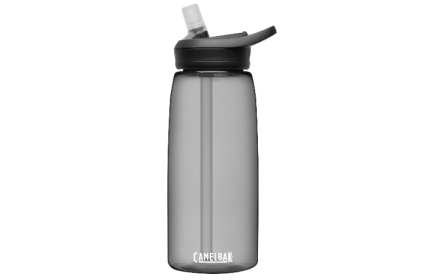
CamelBak Eddy+ Water Bottle
Rigid plastic canteens:
- CamelBak Eddy
- Contigo Autospout Ashland Water Bottle
- EcoVessel Wave Tritan Sports Water Bottle
- Nalgene Wide Mouth Water Bottle
- Nalgene Ultralite Wide Mouth Water Bottle
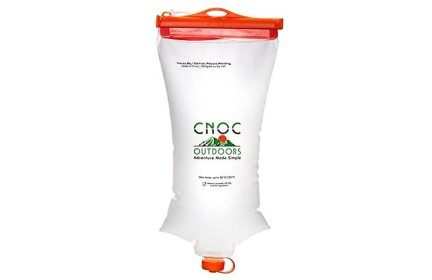
Cnoc Outdoors 2020 VECTO 2L Water Container
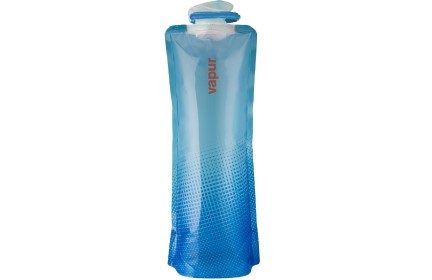
Vapur 1.5L Wide-Mouth Anti-Bottle
Soft plastic canteens:
- Cnoc Outdoors 2020 Vecto 2L Water Container
- HydraPak 1L Stow Bottle
- Platypus Platy Water Bottle
- Platypus SoftBottle
- Vapur 1.5 L Wide-Mouth Anti-Bottle
Be prepared. Don’t be a victim.
Want more great content and giveaways? Sign up for The Prepared’s free newsletter and get the best prepping content straight to your inbox. 1-2 emails a month, 0% spam.
Canteen types
Metal canteens
Metal canteens are available in aluminum or stainless steel. Aluminum can be lighter, but to prevent the aluminum from leaching into the contents of the container it must be lined with a plastic resin or epoxy, both which can contain BPA. Ceramic is sometimes used instead, but can crack.
The best options are 316 (18/10) or 18/8 grade stainless steel. Not only is stainless steel tough, but you can use it to boil water, which is key for disinfection and cooking. However, stainless containers have some drawbacks: they’re bulky and heavy.
There are two types of stainless bottles: single-walled and double-walled. Double-walled containers offer additional insulation, but they’re not what you want in your go-bag because they can’t be used for boiling. Stick to single-walled containers that can handle fire. You also ideally want to avoid containers with painted stainless, because the coating might become a mess after being exposed to fire, or release foul vapors. Opt for bare stainless.
Stainless bottles can have narrow or wide mouths. The wider, the better, because it makes it easier to capture water. It also makes it easier to clean.
Glass Canteens
Glass has come back into fashion because of health and environmental concerns over plastic. While glass is great in your home, it doesn’t belong in your go-bag. Glass is heavy and fragile. Break a glass container in your go-bag and you’re going to have a dangerous mess.
Plastic Canteens
Plastic water containers are useful in your go-bag. They’re lightweight and often collapsible. The Cnoc Vecto not only rolls up, but it has a zip top so you can easily open the bag up and dunk it underwater to fill it. The spout can be screwed into common water filters like the HydroBlu Versa, so you have a complete water collection and filtration solution in one bag.
Even if you object to the use of plastic, keep in mind that this is for temporary, emergency use. Most of the health concerns over plastic come from the use of Bisphenol A or BPA, which contains estrogen-mimicking compounds that can affect reproductive function, especially in aquatic animals. Quality plastic containers are BPA free, though they may leach chemicals into your water anyway.
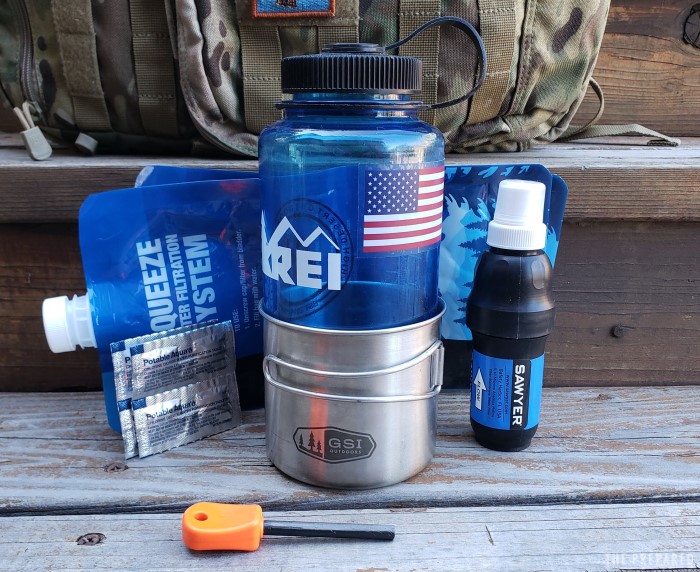
What about single-use plastic bottles?
Disposable plastic bottles like soda and water bottles aren’t recommended for long-term use. Though they don’t have harmful chemicals like BPA, they will degrade in sunlight, and the narrow mouth makes them hard to clean. However, they can be useful in a pinch if you find some on your travels. Keep them out of direct sunlight and they can last a surprisingly long time. They’re also extremely lightweight, and they can screw into many common water filters.

What about hydration bladders like CamelBaks?
Hydration bladders are wearable water bags with a flexible drinking hose attached. They’re great for hiking, because you can take a sip from the tube on the go, without having to stop to pull out a water bottle.
However, they’re not a great choice for bugging out. For one, while many are durably constructed, they can still rupture or develop holes. Even if you can patch it up on the go, it might make a huge mess in your go-bag. They can be a tad bulky, and unlike a stainless steel canteen, you cannot use them to boil water.
